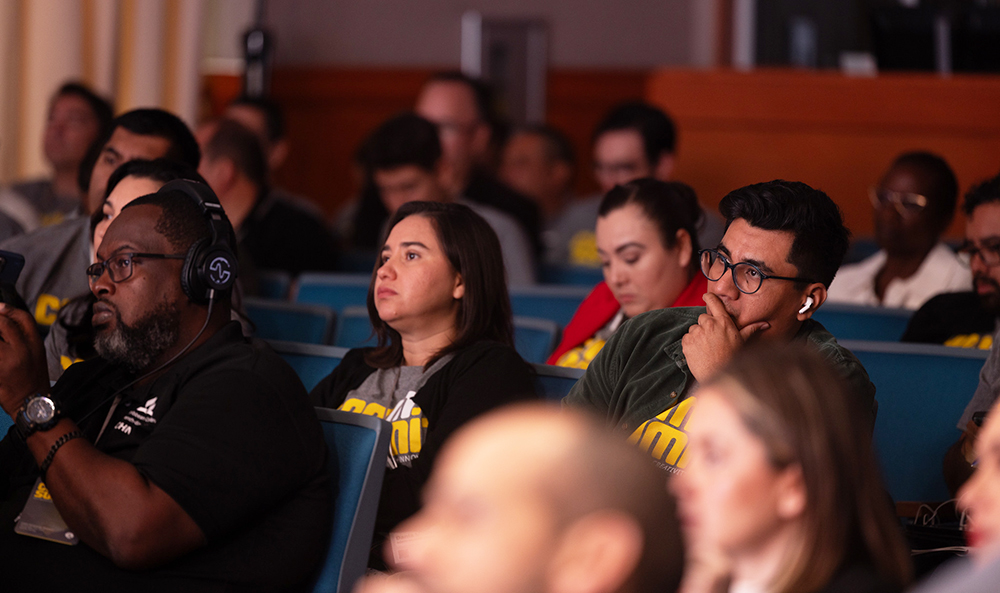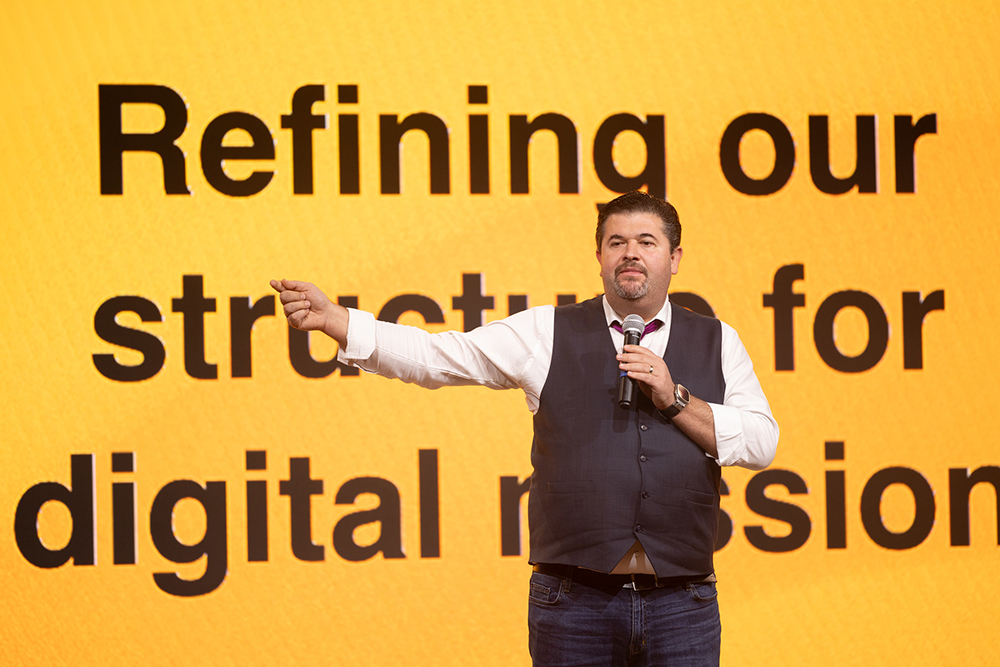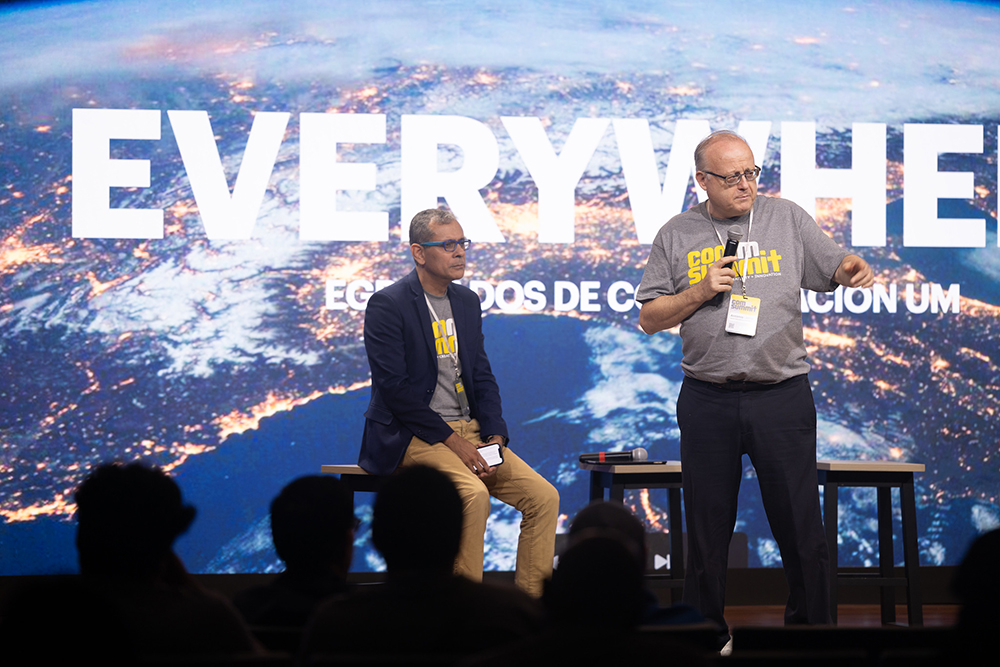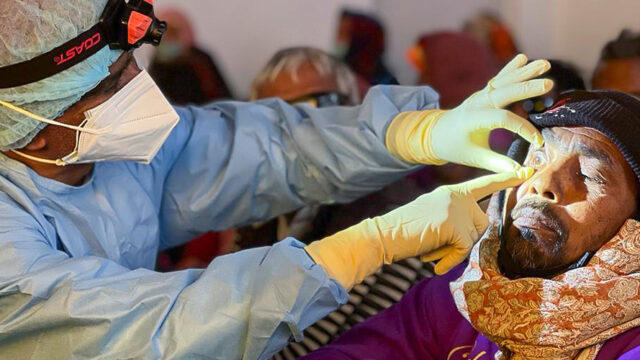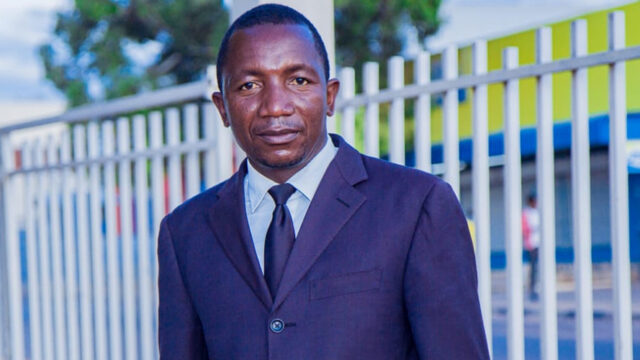Leaders call all entities to work together to increase presence and effectiveness.
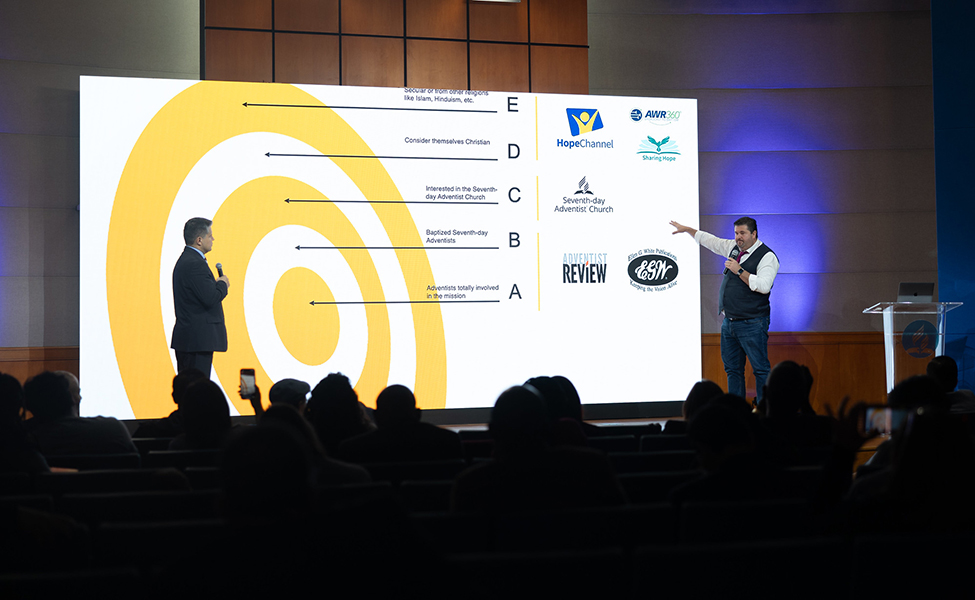
The second day of the Inter-American Division (IAD) Communication Summit (CommSummit) in Miami, Florida, United States, began November 8 with a spiritual reflection that called scores of Seventh-day Adventist communicators to rely on God’s power and move forward in faith when working or pitching their projects and initiatives.
Arnaldo Cruz, Southwestern Florida Conference media evangelist, shared tips on how to keep trusting and moving forward even when some might at first not understand the value of what they do. “Even [when] the message does not change, we must adapt to what is on now,” Cruz reminded communicators. “It might be uncomfortable and difficult to do things that are out of our comfort zone.”
Against that background, Cruz explained that every person who uses social networks to help others find salvation in Christ will face their fiery furnace, quoting the Bible story recorded in Daniel 3. Cruz said that their fiery furnace can come in the form of an administrator or church members who do not support or understand what a blessing social networks can be.
Cruz spent the next few minutes discussing what communicators can do to deal with their “fiery furnace.”
He reminded communicators that people don’t follow institutions, churches, or television channels. “People follow people,” he said. “It means that the success of an institution is that people who are in social networks represent their institution properly.” But if communicators are doing just that, they should keep trusting and working hard until others inside the church see the value in what they do, Cruz said as he provided some examples from his personal experience.
Consequently, Cruz called on Adventist communicators not to get discouraged and keep moving forward in God’s name. “No matter what happens, walk into your fiery furnace in God’s name,” he said.
Subsequent presentations during the November 8 morning session discussed technical aspects of production, the need for increasing collaboration between Adventist entities, and the life story of one of the Adventist Church’s most well-known photographers.
Collaboration and Engagement
Sam Neves, General Conference (GC) associate communication director, shared the rationale behind a renewed push by the world church to increase collaboration between communication entities. He explained that it’s all about recognizing how various organizations can complement each other and build on their respective strengths to reach different target populations, from longstanding settled church members to those who have never heard about the Seventh-day Adventist Church. “In understanding limitations, we recognize the need for collaboration,” he said.
Neves was accompanied by Hope Channel International president Vyacheslav Demyan, who provided examples of how this new approach is helping Adventist media outlets to focus and refocus their activities. “The Hope Channel brand is projected to be used now only for reaching out, for spreading the message” he said.
This new model of collaboration will require competence and humility, Neves said. At the same time, he said, a formula for media ministry success requires three key elements: content, distribution, and engagement. “Some people love creating content, but then you need to distribute it,” Neves said. Otherwise, he explained, the impact of that content is lost. “And after you distribute it, you need to engage people, to create and build a community around it.” Demyan agreed. “It’s not possible to start creating content before having an idea about how we are going to distribute it and help people engage with it,” he said.
Demyan shared some data about Hope Channel television distribution. In North America alone, Hope Channel has a consistent audience of 1,250,000 people and through Direct TV, they are potentially reaching 25 million people, he reported. Hope Channel brand recognition is almost at the level of the Daystar Television and Pureflix online platforms, he said. Also, Intelsat (G19) satellite distribution shows Hope Channel is number two among more than a dozen outlets. “Is it a powerful tool to reach out?” Demyan asked. “Of course! And it’s not me who’s saying that.”
Demyan shared some of the Hope Channel’s initiatives and possibilities, as the network tries to become a comprehensive media ministry. They include Hope Studios, “the cinematic arm of Hope Channel to emphasize development and distribution,” digital distribution, which includes the Heroes Bible game, a YouTube channel with more than 100,000 followers, and a prophecy series for young people.
Demyan also referred to Hope Studio, which offers a Bible study course that now has 400,000 students enlisted, and mentioned Hope Cloud, a global Adventist digital evangelism platform. Very soon, Demyan said, Adventist communicators will be able to access video content from any of the 82 regional Hope Channels and select voice-over translation in the language of their choice.
At the same time, and despite all these developments, Neves emphasized, it’s key to remember that as Adventist communicators engage with media, they must understand that the most important element they have is not their methods but the daily presence of the Holy Spirit. “The only reason why the world church channels are bringing so many Bible studies and baptisms isn’t because of the method,” Neves said. “It’s because there are human beings on the other end filled with the power of the Holy Spirit and the ability to love.”
Inspiration Behind the Lens
Photographer Daniel Gallardo also shared his professional life journey and how God led him to become one of the most well-known photographers in the Adventist Church. He began taking photos as a student, and some of his first projects helped him to pay for his studies, Gallardo said. “I did weddings, celebrations, fashion, children, food, landscape, architecture … I was on a search to find out what I wanted to eventually do,” he said.
Gallardo, despite his relatively young age, has been a photographer for the Inter-American Division for a decade now. He said that some projects for the Adventist Development and Relief Agency (ADRA) led him to find out what he really wanted from photography. “I remember one project in Honduras,” he said. “I spent days meeting people, sharing stories, learning about a feeding initiative. I returned from that trip more focused on what I wanted from photography. I felt I wanted to get to know people, to learn about their stories.”
Back at Montemorelos University (MU) in Mexico, Gallardo began to develop a technique that combines computer painting with photographs, staging them to tell stories on Bible beliefs and faith themes. “It was a long and arduous process,” Gallardo said. But it was a process that was crowned when, for the 75th anniversary of University of Montemorelos, Gallardo managed to stage an image of the university campus where photos of real people — 300 members of MU’s personnel, staff, and students — and 175 “angels” were incorporated on a canvas.
Gallardo’s journey has had its ups and downs, such as the time most of his camera equipment was stolen. But his ministry was not derailed. “Challenges will certainly come,” he told Adventist communicators. “But if you stay firm, God will raise you up again, not to the place you were before falling, but to a better, higher place.”
Recently, Gallardo was selected as one of the five illustrators for the new Sabbath School Bible Study Guides for children that the Adventist Church will use around the world. “They chose my technique,” Gallardo said. “It’s unbelievable what God can do.”
The original version of this story was posted on the Inter-American Division news site.



